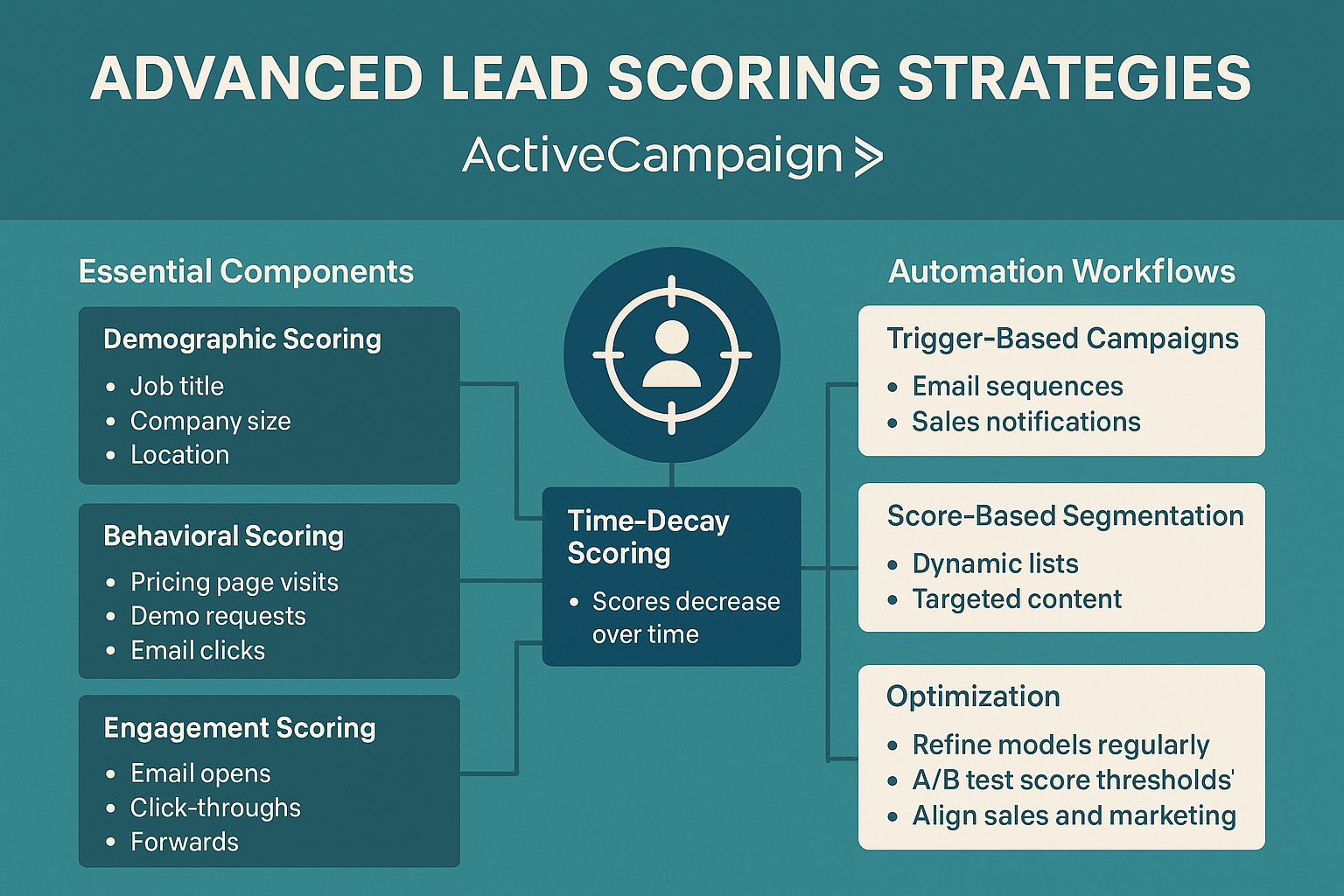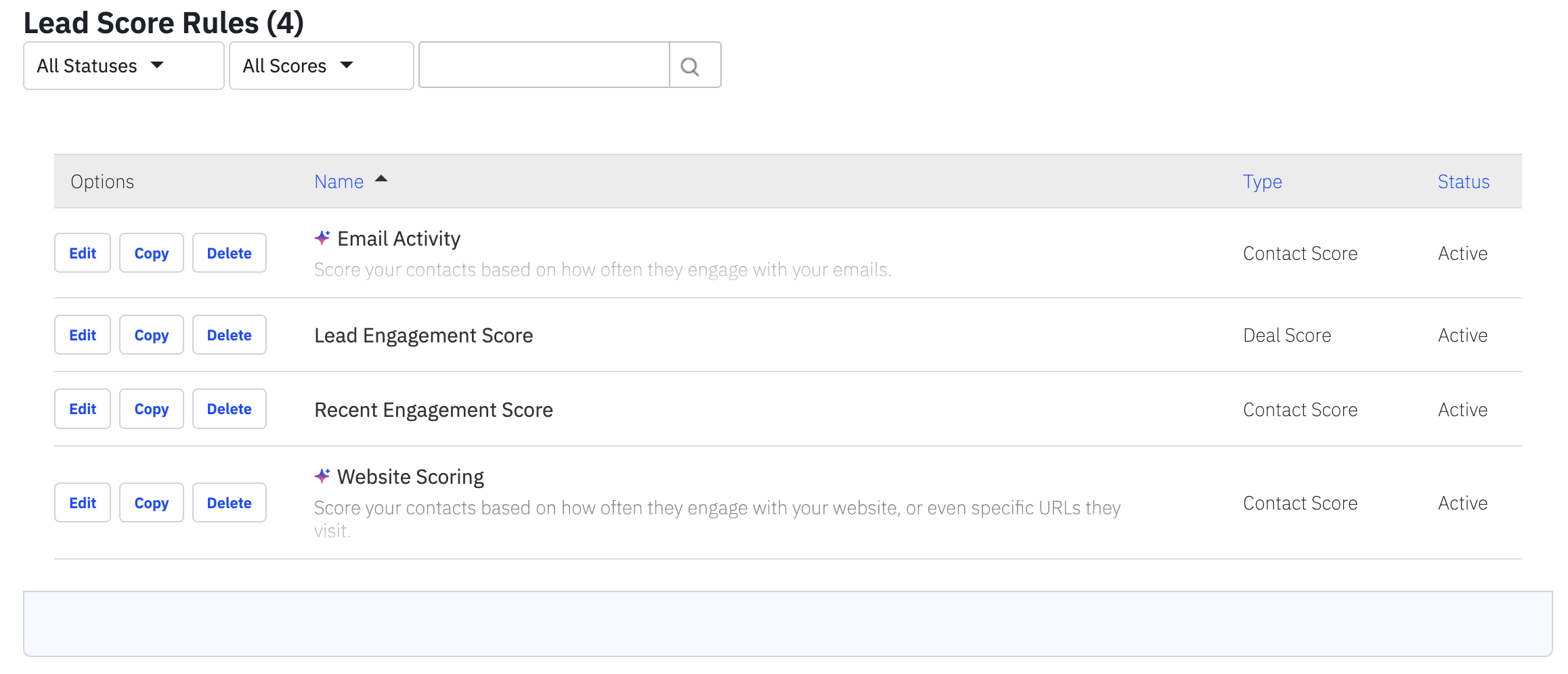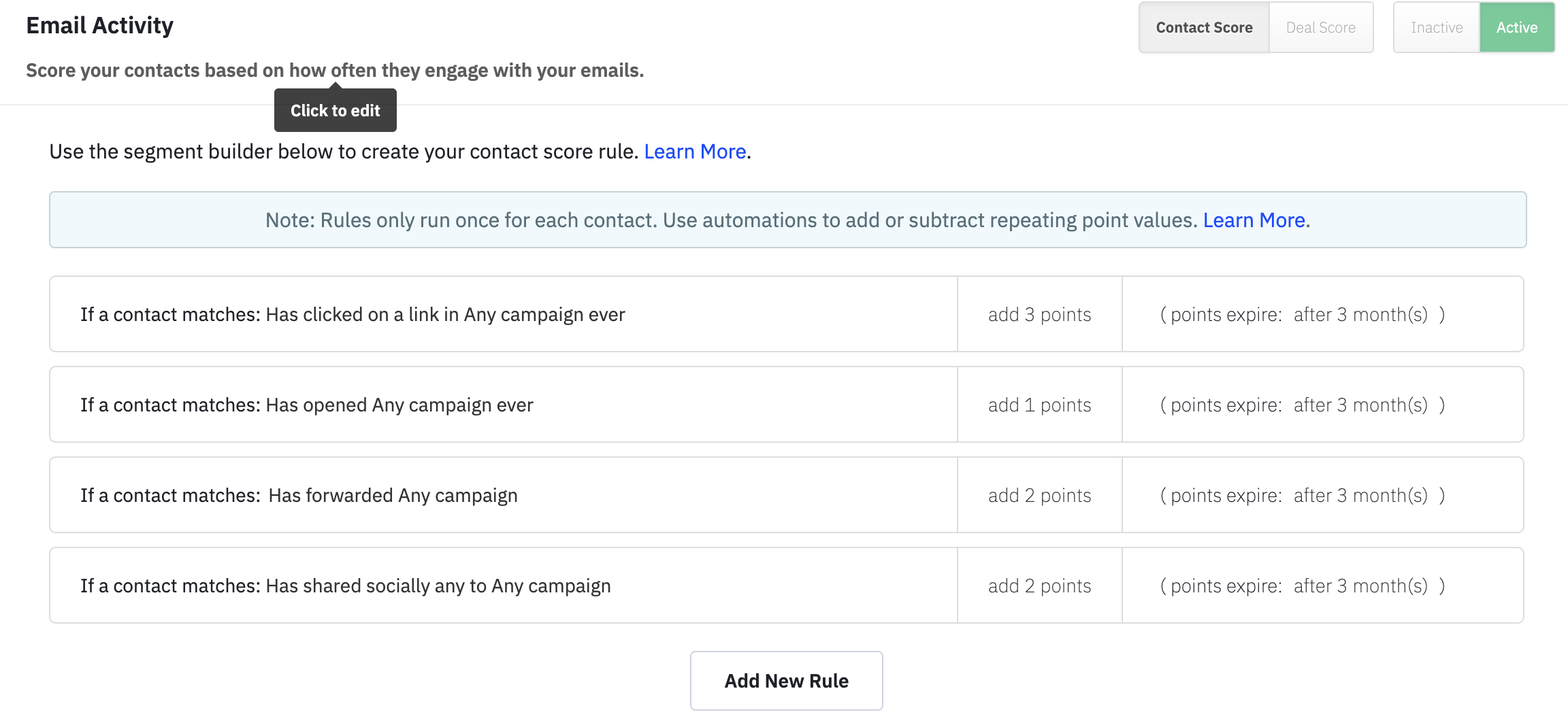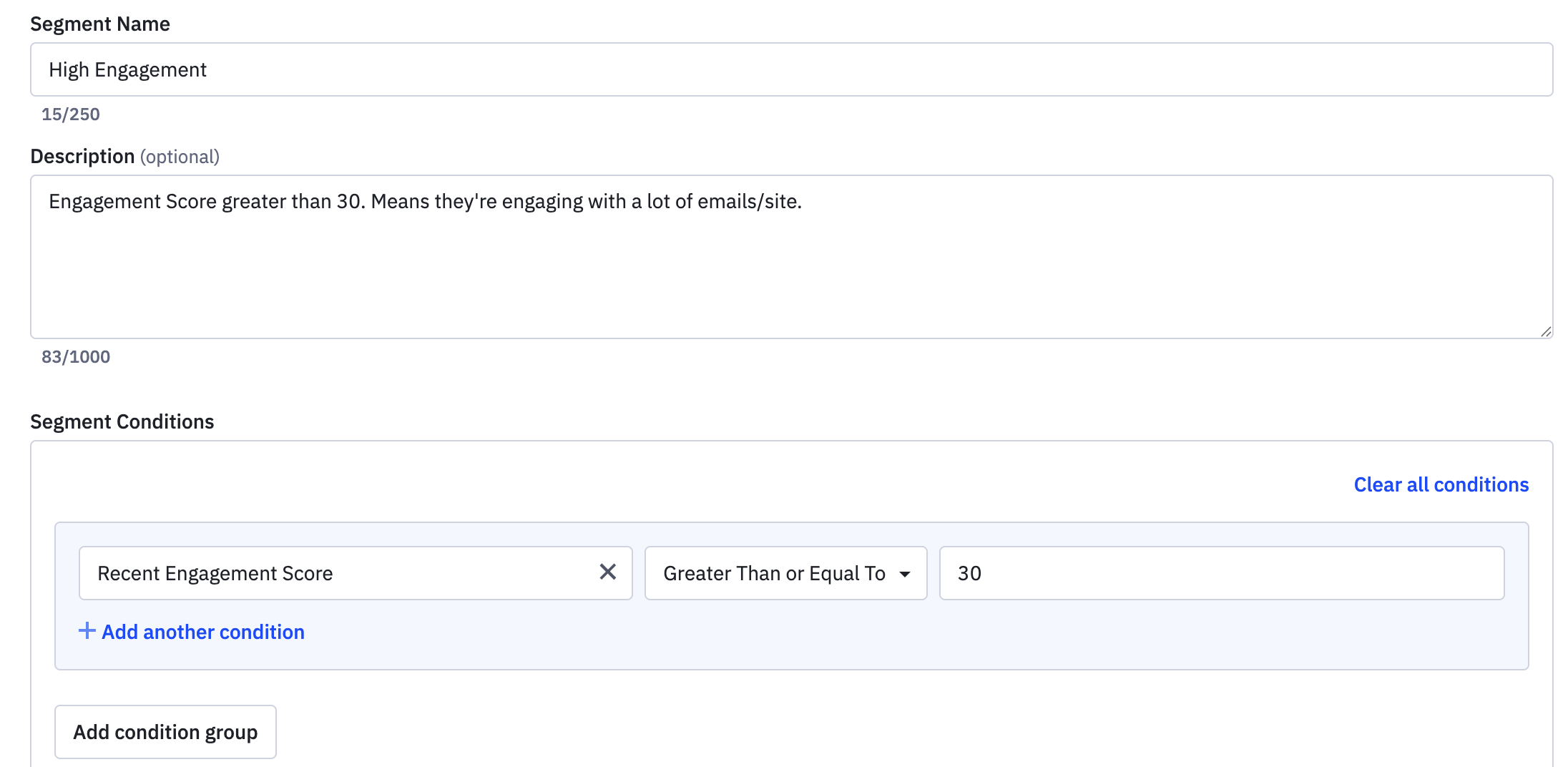
.png)
Nick Cottee
Founder, Zilla
.png)
Subscribe for email updates
We help streamline your funnel, boost conversions, and unlock more revenue.
.png)
Lead scoring has revolutionized how businesses approach email marketing and customer acquisition. As ActiveCampaign specialists, we've witnessed firsthand how proper lead scoring implementation can increase conversion rates by up to 300% while dramatically reducing sales cycle times. This comprehensive guide will walk you through advanced lead scoring strategies that separate successful campaigns from mediocre ones.
Lead scoring assigns numerical values to prospects based on their behaviors, demographics, and engagement levels. Think of it as your marketing automation system's way of identifying which leads are ready to buy and which need more nurturing. An experienced ActiveCampaign expert knows that effective lead scoring isn't just about assigning random points—it's about creating a systematic approach that aligns with your sales process.
The beauty of ActiveCampaign's lead scoring system lies in its flexibility and depth. Unlike basic email marketing platforms, ActiveCampaign allows you to create sophisticated scoring models that consider multiple touchpoints across your customer journey. This advanced capability makes it an ideal choice for businesses serious about lead nurturing and conversion optimization.

Start with the basics that any ActiveCampaign consultant will emphasize: demographic data. This includes job title, company size, industry, and geographic location. For B2B companies, a VP of Marketing at a 500-person software company might score higher than an individual contributor at a 10-person startup, depending on your ideal customer profile.
Set up demographic scoring by assigning points based on how closely prospects match your buyer personas. For example:
Behavioral data reveals intent and engagement level. Your marketing automation system should track website visits, email opens, link clicks, content downloads, and social media interactions. Each action indicates varying levels of interest and buying intent.
High-value behaviors might include:
Email marketing engagement provides crucial insights into prospect interest. Regular email opens, click-throughs, and forwards indicate an engaged audience member who's more likely to convert. Conversely, consistently low engagement scores might trigger re-engagement campaigns or list cleaning protocols.

Recent activities should carry more weight than older ones. A prospect who downloaded your case study yesterday is more likely to convert than someone who did so six months ago. Implement time-decay scoring by reducing point values over time or setting expiration dates on certain actions.
Not all behaviors indicate purchase intent. Visiting your careers page, unsubscribing from emails, or repeatedly bouncing from your pricing page might indicate disinterest. An ActiveCampaign specialist understands the importance of negative scoring to maintain accuracy.
Common negative scoring triggers:
Modern lead nurturing requires a multi-channel approach. Your ActiveCampaign system should integrate with your CRM, social media platforms, webinar software, and website analytics. This comprehensive view ensures no engagement opportunity goes unscored.
Set up automated campaigns that respond to specific score thresholds. When a lead reaches 75 points, they might receive a personalized sales outreach email. At 100 points, they could trigger a direct sales team notification. This marketing automation approach ensures hot leads receive immediate attention while nurturing campaigns continue for lower-scored prospects.
Use lead scores to segment your email marketing lists dynamically. High-scoring leads might receive product-focused content and special offers, while low-scoring leads get educational content and brand awareness materials. This targeted approach improves engagement rates and accelerates the nurturing process.
ActiveCampaign's Segment Builder makes it effortless to automatically track contacts with high lead scores through dynamic segmentation rules. By creating segments based on conditions like "Contact Score is greater than or equal to 75," your system continuously updates these high-value prospect lists in real-time as contacts accumulate points through their behaviors and interactions. This powerful feature ensures your sales team always has access to the most current list of qualified leads without manual list management, while your marketing automation workflows can instantly respond to score changes by moving contacts between nurturing sequences, triggering personalized campaigns, or escalating prospects to direct sales outreach.

Combine lead scoring with progressive profiling to gather more information about high-scoring prospects. As leads demonstrate increased interest through their scores, request additional details through strategic form fields and surveys. This data enriches your scoring model and improves targeting accuracy.
Track essential metrics to evaluate your lead scoring effectiveness:
An ActiveCampaign consultant knows that lead scoring models require constant refinement. Monthly reviews should examine scoring accuracy, threshold effectiveness, and behavioral pattern changes. Adjust point values, add new scoring criteria, and remove outdated factors to maintain model accuracy.
Test different score thresholds for various actions. Does a 75-point threshold for sales outreach perform better than 100 points? Should demo requests carry more weight than pricing page visits? Continuous testing ensures optimal performance.
Many businesses create overly complex scoring models that become difficult to manage and understand. Start simple with 5-10 key behaviors and demographics, then gradually add complexity as you gather data and insights.
Your sales team interacts with scored leads daily and can provide valuable insights into scoring accuracy. Regular feedback sessions help identify when high-scoring leads aren't sales-ready or when qualified prospects are scoring too low.
B2B and B2C customers follow different paths to purchase. Enterprise clients might have longer research phases, while SMB customers may move quickly from awareness to purchase. Adjust your scoring model to reflect these different journey patterns.
Score leads based on their interactions across multiple campaigns and touchpoints. A prospect who engages with both your email marketing campaigns and attends your webinars demonstrates higher intent than someone who only opens emails.
Different industries require different approaches to lead scoring. SaaS companies might heavily weight free trial signups, while professional services firms might focus on consultation requests and case study downloads.
Successful lead scoring requires tight alignment between sales and marketing teams. The beauty is, this is where the two teams can truly see their overlapping value in a quantified form. Regular revisions should focus on score threshold effectiveness, lead quality assessment, and conversion rate optimization. This collaboration ensures your marketing automation efforts support sales objectives.
Connect your lead scoring model to revenue outcomes. Track how leads at different score levels convert and calculate the lifetime value associated with various scoring thresholds. This data justifies marketing automation investments and guides budget allocation decisions.
Establish a culture of continuous improvement around your lead scoring efforts. Monthly performance reviews, quarterly model updates, and annual strategy reassessments keep your system performing at peak efficiency.
Advanced lead scoring transforms ActiveCampaign from a simple email marketing tool into a sophisticated marketing automation platform that drives measurable business results. By implementing the strategies outlined in this guide, you'll create a lead nurturing system that identifies high-value prospects, optimizes sales team efficiency, and maximizes marketing ROI.
Remember that successful lead scoring is an iterative process. Start with foundational elements, measure performance consistently, and refine your approach based on real-world results. Whether you're working with an ActiveCampaign expert or managing implementation internally, these advanced techniques will help you unlock the full potential of your marketing automation investment.
The businesses that master advanced lead scoring gain a significant competitive advantage in today's crowded marketplace. By leveraging these sophisticated strategies, you'll transform casual prospects into qualified leads and qualified leads into loyal customers—all while building a scalable, data-driven marketing machine that grows with your business.